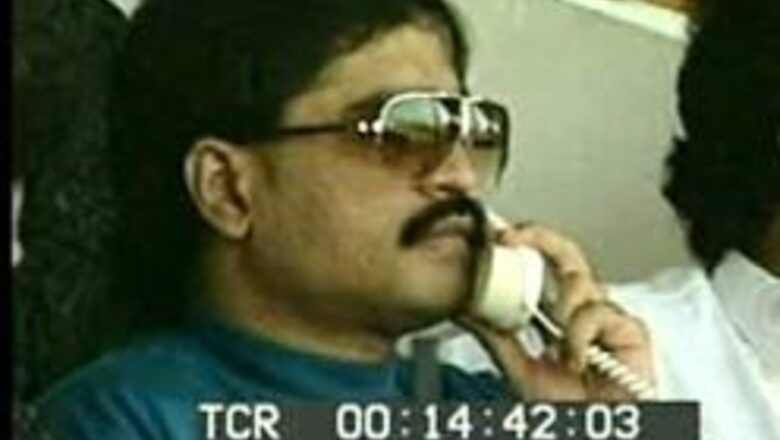
views
Kathmandu: Two Indian aides of underworld don Dawood Ibrahim, suspected of having a role in the 1993 Mumbai serial blasts that killed 257 people, were arrested by the Nepal police here and have been handed over to Indian authorities in a rapid and well-concealed operation.
Salim Abdul Ghani Gazi alias Asfak Ahmed Shah and Riyaz Khatri alias Riyaz Abukar Lone, who carried bounties on their heads and had an Interpol red corner notice issued for their arrest in 1997, were caught by the Kathmandu metropolitan police from their hideouts in the capital on Thursday.
Given the sensitivity of the issue, the arrests were kept under wraps till the two men, suspected of having a hand in the serial Mumbai blasts, were handed over to a plainclothes Indian team led by Central Bureau of Investigation (CBI) officials at the Tribhuvan International Airport Friday and flown to India.
"The two accused face charges of murder, attempt to murder, criminal conspiracy and terrorist activities," Nepal police said. "Interpol issued a top priority red corner notice for their arrest."
According to police, investigations show that the two men had been living in Nepal for a long time under different names.
Gazi was operating as a manpower recruitment agent which gave him an excuse to travel frequently to Dubai and Saudi Arabia. Khatri was posing as a pashmina (lamb's wool) trader.
The two men were hunted down in the Maharajgunj area of the capital on the basis of a tip-off received by police.
Khatri is believed to have been Dawood's driver while Gazi, believed to have close links to Chhota Shakeel, carried a reward of Rs 200,000 for his capture.
The two men had fled India after the March 12, 1993 blasts and had diverted operations to Nepal for over 10 years.
"Following NCB/India and CBI's request, in accordance with the law, the two men have been deported to India for appropriate legal action," police said in a press statement.
This is the second Mumbai blast-related arrest in Nepal.
In 2006, Nepal police arrested two Pakistanis, Moiuddin Siddiqi and Ghulam Hussain Cheema, from a five-star hotel in Kathmandu.
However, they were not handed over to Indian authorities. Instead, Nepal police began legal proceedings against them, accusing them of possessing explosive materials.
This is the second case of deportation from Nepal this year.
Earlier this year, police arrested Amit Kumar, known as the 'kidney king', after Indian police unearthed a massive illegal kidney transplant network spanning India, Nepal, the Middle East, Europe and Canada.
Kumar was traced to a holiday resort in Chitwan district, a popular tourist destination on the India-Nepal border, after he was alerted by media reports that police were closing down on the Kathmandu hotel where he had been hiding since the scam broke in India.
Friday's deportations revive the fears that the open border between India and Nepal is a godsend for criminals, especially those involved in terrorist activities with Nepal becoming a hub of anti-Indian terror operators.
Though Nepal's government has been reiterating its pledge not to allow any anti-Indian activities on its soil, the political instability racking the Himalayan republic and the rapid deterioration in law and order have made checking such activities an impossible task.
Nepal's Home Minister Bam Dev Gautam said this week that the extradition treaty between the two countries would be updated soon, which would facilitate the deportation of suspects accused of being involved in criminal activities.



















Comments
0 comment